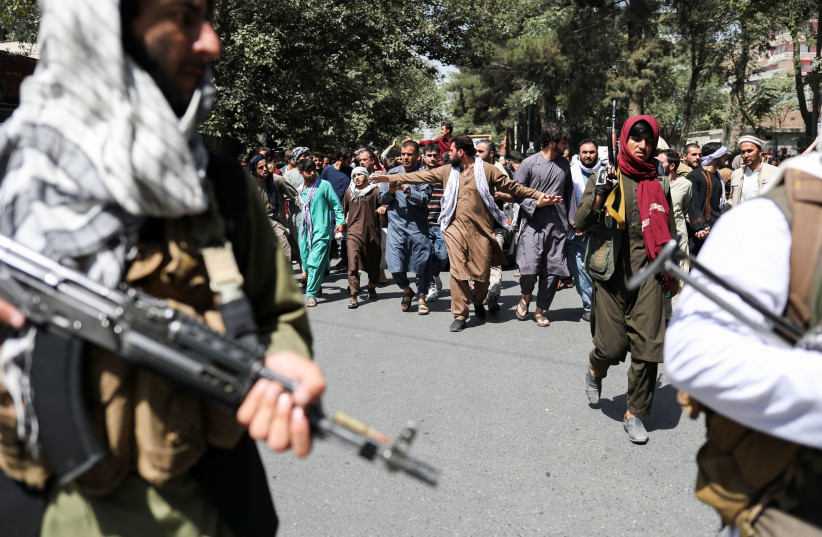For Kabul day laborer Khan Ali, struggling to feed a family of six since losing his job as a market trader, life has become so hard that he jumped on an offer by the cash-strapped Taliban government to pay him in wheat rather than the local afghani currency.
"For now this is good, at least we will not die of hunger," the 43-year-old told Reuters.
In a country where UN agencies estimate only 5% of households have enough to eat on a regular basis, the government is giving him 10kg (22lb) of unmilled wheat a day to work on strengthening the city's water and drainage systems.
"It is not enough of course, but in this situation where all Afghans are complaining about lack of work and poverty this is good," said Ali, a former market trader who was forced to sell the handcart he used at Kabul's main market as Afghanistan's economic crisis worsened.
International aid has largely disappeared following the Taliban's victory over Afghanistan's Western-backed government in August, and long queues form outside banks.
For those with bank accounts and money in them, withdrawals have been rationed to 20,000 afghani or $200 a week to help manage a dwindling money supply.
Bypassing a financial system that is close to collapse, officials on Sunday announced a public works program under which 66,000 tons of wheat will be distributed to laborers filling 44,000 jobs/44,000 laborers.
Most of the work will involve building defenses against the flash flooding that plagues Kabul in the rainy season and digging ditches to channel water into its badly depleted water table.
'ALL THAT'S LEFT IS SURVIVAL'
Neighboring countries have donated thousands of tonnes of wheat to help Afghanistan deal with a humanitarian crisis that is slipping out of control, but the use of wheat as a means of payment underlines the extent of the economic meltdown.
Some $9 billion in central bank reserves are frozen outside the country and key trade crossings have been blocked for weeks, crushing exports and depriving the government of millions of dollars in customs revenues.
"There is no big hope left for life in Afghanistan," said another man, Abdul, who had also found work paid for in wheat but who preferred not to give his full name. "Our world is destroyed anyway, now all that's left for us is survival."
While he has little faith in the Taliban government's ability to master the crisis, he also counts himself among the lucky ones.
"There are thousands like me, waiting for an opportunity to have this work I have," he said.
"Poverty, unemployment and hopelessness has already hit our people hard. God knows what will happen, I think very tough days are ahead."

